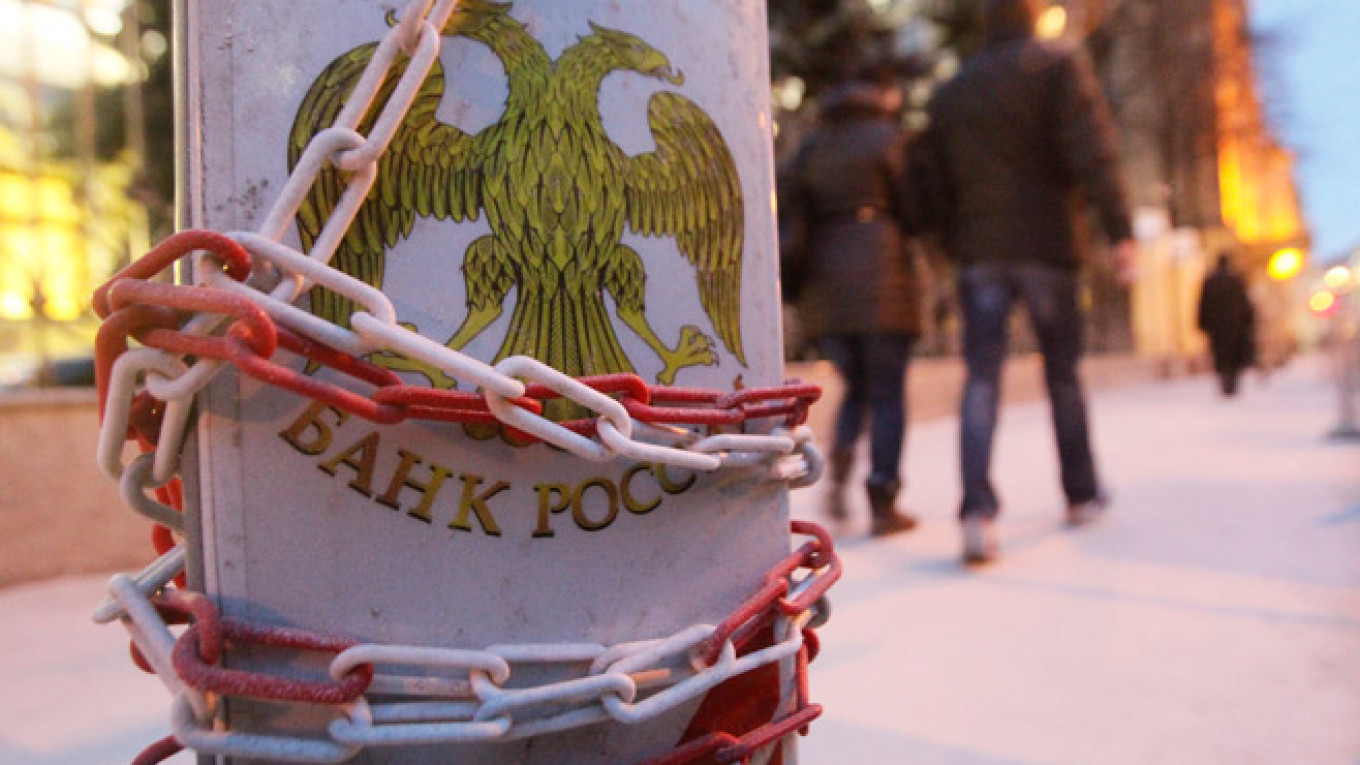The Russian government may start helping itself to a bigger share in its Central Bank's profits, in the latest attempt to plug up holes in a federal budget under pressure from Western sanctions and a sharp economic slowdown.
In a move not expected to seriously affect the regulator's operations, 75 percent of the Central Bank's profits for 2013 and 2014 would be siphoned into the federal budget over the next two years, up from the usual 50 percent, under a Finance Ministry bill approved Tuesday by the government's legislative commission. The government is to consider the proposal at an upcoming session.
"We're probably taking about the equivalent of $1 billion to $2 billion [a year]," said Alexander Morozov, chief economist for Russia at HSBC. According to the bill, the ratio would return to 50 percent in 2016.
The Central Bank's profits have varied widely over recent years, from 22 billion rubles ($600 million) in 2011 to 247 billion rubles ($6.8 billion) in 2012 and 129 billion rubles ($3.6 billion) last year.
This extra 25 percent of its profits, which would previously have stayed on the Central Bank's balance sheet, could now go to bolstering a state budget under siege from slowing economic growth and a resulting slump in corporate income taxes, a major source of federal funds.
Extra expenses such as propping up the economy of Crimea, annexed from Ukraine in March, and fulfilling social spending commitments made by President Vladimir Putin with his return to office in 2012 have only added to the strain.
As a result, the Finance Ministry has been scrambling to find extra sources of income. Last month, the government opted to redirect employees' contributions from private pension funds into state coffers for the second year in a row, depriving Russia's nascent private pension industry of an estimated 550 billion rubles ($15 billion) in 2015 and retarding the development of capital markets by weakening key institutional investors.
Russia may also allow regional government to introduce a 3 percent sales tax from next year in a move that economists say would push up already high inflation and further hamper economic growth.
Since $1 billion to $2 billion is quite small from the perspective of the Central Bank — which was sitting on foreign reserves worth more than $468 billion on Tuesday — it will likely have "minimal effects" on the regulator, but will also have little impact on the budget and economy at large, Morozov said.
See also:
Ruble Moves Closer to Free Float as Central Bank Steps Back
Contact the author at [email protected]
A Message from The Moscow Times:
Dear readers,
We are facing unprecedented challenges. Russia's Prosecutor General's Office has designated The Moscow Times as an "undesirable" organization, criminalizing our work and putting our staff at risk of prosecution. This follows our earlier unjust labeling as a "foreign agent."
These actions are direct attempts to silence independent journalism in Russia. The authorities claim our work "discredits the decisions of the Russian leadership." We see things differently: we strive to provide accurate, unbiased reporting on Russia.
We, the journalists of The Moscow Times, refuse to be silenced. But to continue our work, we need your help.
Your support, no matter how small, makes a world of difference. If you can, please support us monthly starting from just $2. It's quick to set up, and every contribution makes a significant impact.
By supporting The Moscow Times, you're defending open, independent journalism in the face of repression. Thank you for standing with us.
Remind me later.






